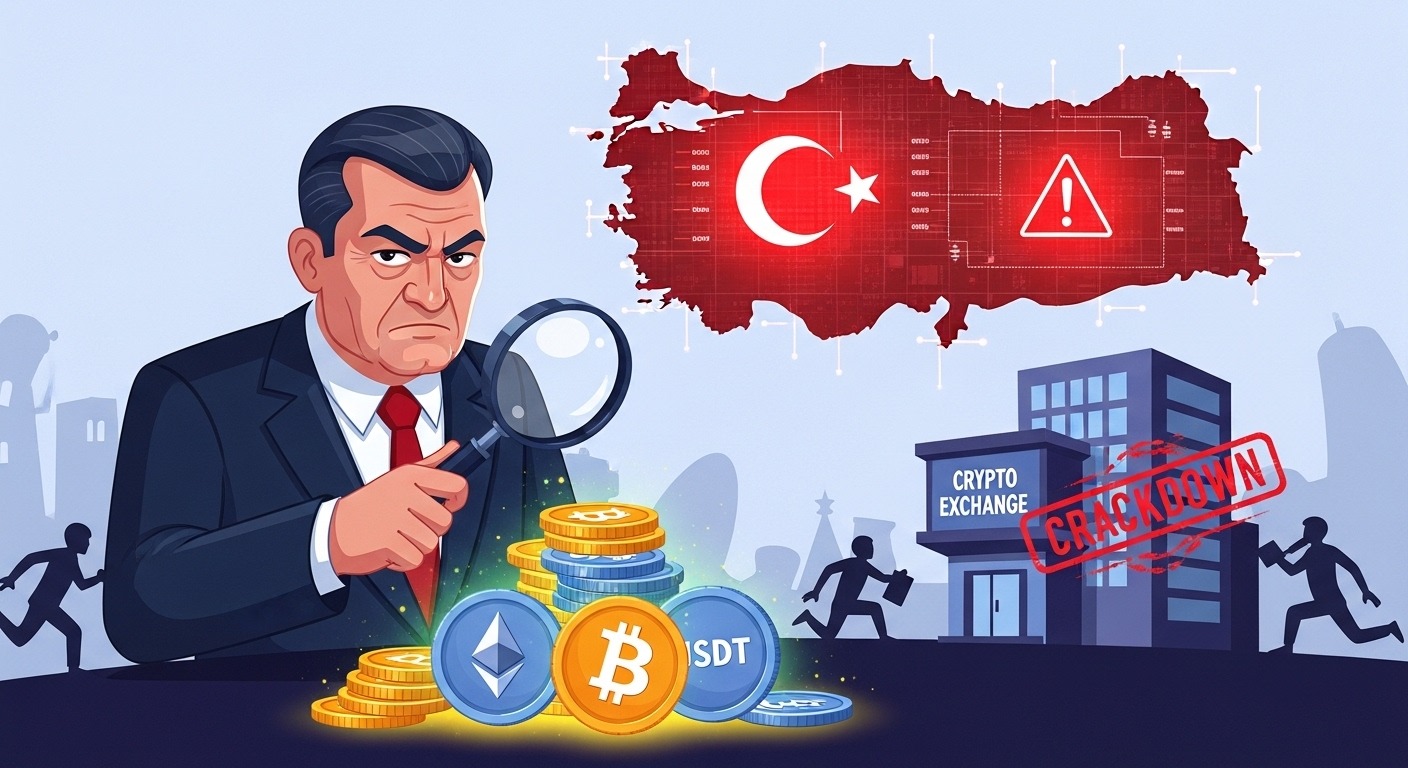How Turkey Crypto Crackdown Targets Money Laundering: New Transaction Rules
Turkey’s Finance Ministry just unveiled plans that will fundamentally change how you use Turkey crypto exchanges in the country. If you’re trading digital assets in Turkey, these new rules will directly impact your daily transactions, withdrawal times, and transfer limits.
What These Rules Mean for Your Crypto Transactions
The turkey crypto regulation 2025 framework introduces three major changes that affect every crypto user. First, you’ll need to explain every transaction you make with at least 20 characters describing what the money is for. Second, your withdrawals will be delayed by 48-72 hours unless your exchange follows specific international reporting standards. Third, stablecoin transfers get capped at $3,000 daily and $50,000 monthly.
Here’s how the turkey crypto transaction rules work in practice: Every time you send crypto, you’ll type a description like “payment for freelance work” or “trading arbitrage between exchanges.” The platform stores this information and reports it to authorities when requested.
New Withdrawal Delays You Need to Know
Turkey crypto withdrawal rules turkey introduce mandatory waiting periods that will slow down your access to funds. Most withdrawals now require a 48-hour delay, while your very first withdrawal from any new account gets held for 72 hours.
The only way around these delays is if your exchange fully complies with the turkey travel rule crypto requirements. These platforms collect complete identity information for both sender and recipient on every transaction, similar to how banks report wire transfers.
Treasury and Finance Minister Mehmet Şimşek explained the turkey crypto finance ministry’s position: they want to stop criminals without blocking legitimate users. Platforms that meet the highest compliance standards can process withdrawals faster and offer higher transfer limits.
Stablecoin Limits That Affect Your Trading
The crypto stablecoin limits turkey rules target USDT, USDC, and similar dollar-pegged tokens because criminals often use them to move money quickly. Under the new turkey stablecoin rules, you’re limited to $3,000 per day and $50,000 per month for stablecoin transfers.
However, compliant exchanges can double these limits to $6,000 daily and $100,000 monthly if they follow all travel rule requirements. This creates a clear incentive for platforms to invest in better compliance systems.
Professional traders get some relief: transfers related to market making, arbitrage, and liquidity provision are exempt from limits as long as you can prove the source of your funds and your exchange monitors the activity.
How This Affects Your Exchange Choice
The turkey crypto platforms regulations create a two-tier system where some exchanges offer better service than others. Platforms that invest in full compliance get to offer faster withdrawals and higher limits, while basic platforms face stricter restrictions.
What are Turkey’s new crypto transaction rules doing to exchange operations? They’re forcing platforms to choose between expensive compliance upgrades or losing competitive advantage. Most major exchanges will likely upgrade their systems to maintain market share.
This means you’ll want to move your funds to exchanges that announce full travel rule compliance, especially if you regularly make large transactions or need fast withdrawal access.
Anti-Money Laundering Focus
The turkey money laundering crypto measures specifically target illegal betting operations and fraud schemes that have been using Turkish exchanges to move stolen funds. The turkey crypto AML law requires platforms to flag suspicious patterns and report them to financial intelligence units.
Crypto transaction reporting turkey rules give authorities real-time visibility into large transfers and unusual activity patterns. If you’re making legitimate transactions, this shouldn’t affect you beyond the minor inconvenience of writing transaction descriptions.
The new crypto rules turkey 2025 framework includes serious penalties for non-compliant platforms, including license revocation and financial sanctions. This enforcement approach should eliminate unreliable exchanges that currently operate with minimal oversight.
International Alignment Strategy
Turkey’s approach mirrors global trends in crypto compliance requirements. The country is aligning its digital asset regulations with the EU’s Markets in Crypto-Assets (MiCA) framework, which similar rules across European markets.
Is Turkey following MiCA in regulating crypto? The answer is yes, with some modifications for local conditions. This alignment helps Turkish exchanges eventually serve European customers and makes it easier for international platforms to operate in Turkey.
The turkey crypto crackdown represents part of broader government crypto laws being implemented worldwide. Countries are moving away from outright bans toward comprehensive regulatory frameworks that allow legitimate use while blocking criminal activity.
Capital Requirements and Licensing
Turkey’s crypto licensing requirements set high barriers for new exchanges. Crypto trading platforms need at least $4.1 million in capital, while custody providers need $13.7 million. These requirements eliminate undercapitalized operators that might struggle with compliance costs.
The Capital Markets Board now has full authority over cryptocurrency oversight, bringing digital assets under the same regulatory umbrella as traditional securities. This creates clearer legal framework for both users and businesses.
What You Should Do Now
If you’re actively trading crypto in Turkey, start preparing for these changes. Choose exchanges that announce travel rule compliance to avoid higher limits and longer delays. Keep records of your transaction purposes because you’ll need to explain them going forward.
How does Turkey plan to limit stablecoin transfers? Through daily and monthly caps that reset based on your exchange’s compliance level. Plan your larger transactions accordingly, especially if you’re moving funds for business purposes.
Will crypto withdrawals be delayed in Turkey? Yes, unless your exchange meets the highest compliance standards. Factor these delays into your trading and payment schedules.
The regulatory risk crypto in Turkey is decreasing for legitimate users while increasing for bad actors. These rules provide clearer guidelines than the previous uncertain environment, even if they add some friction to daily trading.
Turkey’s comprehensive approach to crypto regulation 2025 sets a template that other emerging markets will likely follow. Users who adapt early to these compliance requirements will be better positioned as similar rules spread globally.

